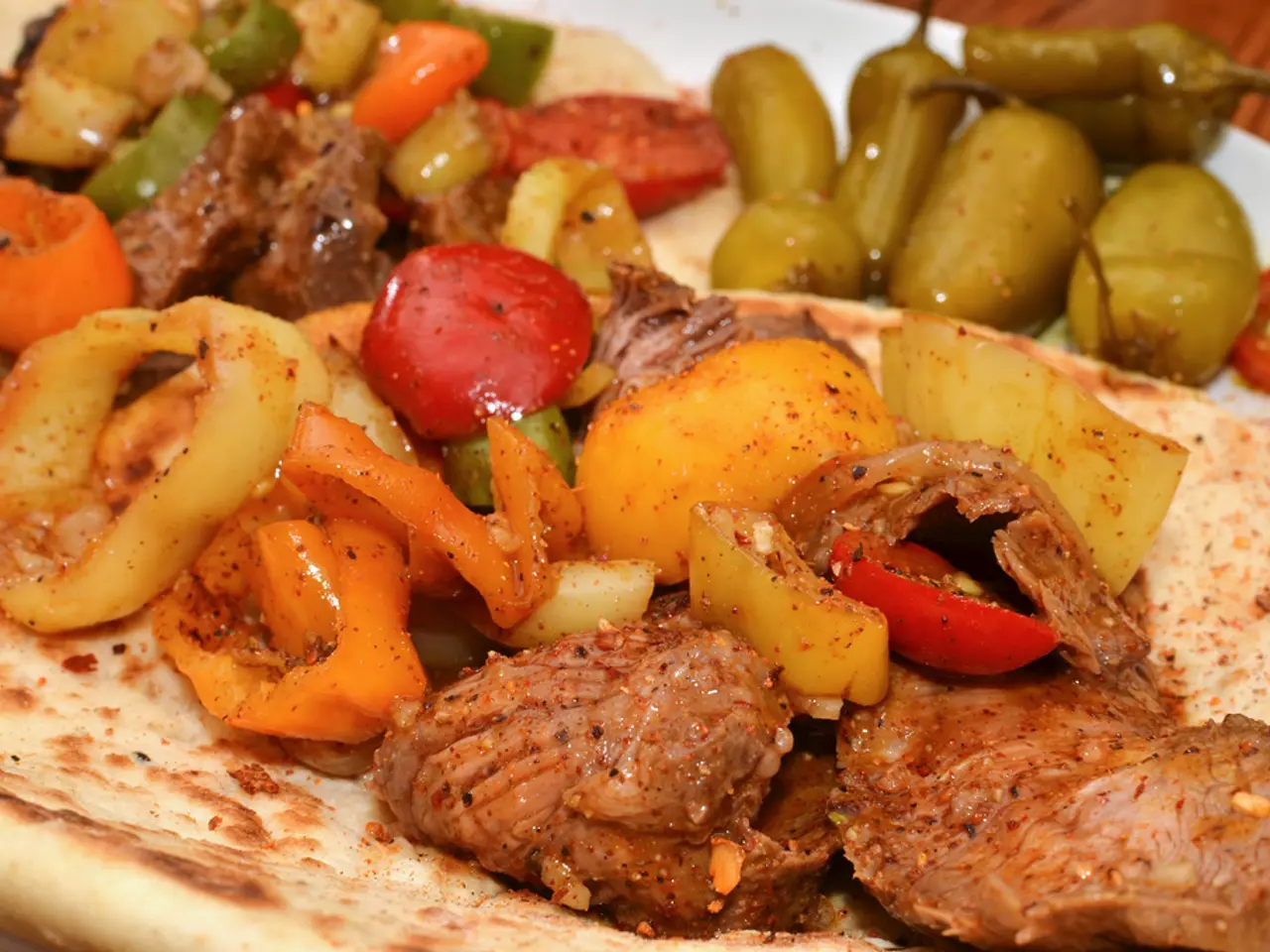Free meal of Polish cuisine offered at Serbian eatery, honoring a century-old debt
A Lasting Legacy: The "Corner" Restaurant and the Story of Dr. Ludwik Hirszfeld in Valjevo
Dr. Ludwik Hirszfeld, a renowned Polish microbiologist and serologist, is remembered not just for his groundbreaking scientific contributions, but also for his humanitarian impact during his time in Valjevo, Serbia, during World War I. Today, his story is kept alive at a local gathering place known as the “Corner” restaurant.
A Hero in the Midst of Crisis
During World War I, Valjevo was hit by a devastating typhus epidemic, claiming thousands of lives. Dr. Hirszfeld, along with other medical professionals, arrived at this war-torn town and worked tirelessly to combat the epidemic. His deep knowledge of blood groups and infectious diseases was crucial in understanding and managing the spread of typhus and other illnesses.
Despite limited resources and harsh wartime conditions, Hirszfeld’s dedication saved countless lives. His efforts not only alleviated immediate suffering but also paved the way for future public health improvements in the region. The gratitude towards him from the people of Valjevo remains palpable—even generations later.
The “Corner” Restaurant: A Living Tribute
The “Corner” restaurant, named for the community spirit that Hirszfeld embodied, is more than just a place to eat. It serves as a cultural hub where stories of the town’s history, including Hirszfeld’s legacy, are passed down. Inside the “Corner,” visitors can find photographs, plaques, and memorabilia related to Dr. Hirszfeld’s stay and work in Valjevo.
The staff and locals often recount tales of his tireless service and scientific achievements, keeping his memory alive for both residents and tourists.
An Ongoing Tradition of Medical and Community Excellence
Inspired by Hirszfeld’s example, the “Corner” restaurant occasionally hosts events dedicated to public health and education, fostering awareness about infectious diseases and honoring medical professionals in the spirit of communal care. This tradition underscores the ongoing connection between science, healthcare, and the community—a triad that Hirszfeld championed.
Moreover, local schools and institutions collaborate with the restaurant during anniversaries related to Hirszfeld’s work, reinforcing the narrative of resilience and knowledge-sharing that he laid down.
A Testament to Compassion and International Solidarity
Beyond his medical breakthroughs, Hirszfeld's journey is a testament to the enduring power of compassion and international solidarity. The relationship between Poland and Serbia, cherished and remembered, is symbolized in the simple act of offering a meal at the “Corner” restaurant, a tradition that ensures no Polish person pays for their meal.
Dr. Ludwik Hirszfeld, born in Warsaw in 1884, is primarily known for his research on blood groups. He introduced the designations for blood groups still known today as 0, A, B, and AB. He also identified the Rh factor and discovered the cause of serological conflicts.
The legacy of Dr. Ludwik Hirszfeld in Valjevo extends far beyond his scientific achievements; it is embodied in the spirit of hope, education, and community connection. The “Corner” restaurant stands as a testament to these values, ensuring that his impact remains a living tradition within the town’s heart.
- The "Corner" restaurant's cultural hub status allows for the sharing of stories not only about town history, but also about the serological conflicts Dr. Ludwik Hirszfeld identified and the blood group designations he introduced.
- The "Corner" restaurant commemorates Dr. Hirszfeld's tireless service by hosting events dedicated to public health and education, fostering awareness about infectious diseases and honoring medical professionals.
- In addition to his significant contributions to medical research, particularly in the areas of blood groups and infectious diseases, Dr. Hirszfeld's journey stands as a symbol of compassion, international solidarity, and the power of these values to bridge cultural divides.
- The "Corner" restaurant promotes a tradition of affordable dining, as Polish visitors are welcomed without charge, symbolizing the enduring bond between Poland and Serbia.
- In the spirit of communal learning, local schools and institutions collaborate with the "Corner" restaurant during anniversaries related to Dr. Hirszfeld's work, reinforcing the legacy of resilience, knowledge-sharing, and adaptability that he demonstrated during his time in Valjevo.
- The "Corner" restaurant's exhibitions feature photographs, plaques, and memorabilia related to Dr. Hirszfeld's stay and work in Valjevo, providing a space for visitors to connect with the history and heritage of this relatively unknown yet significant cultural travel destination.




